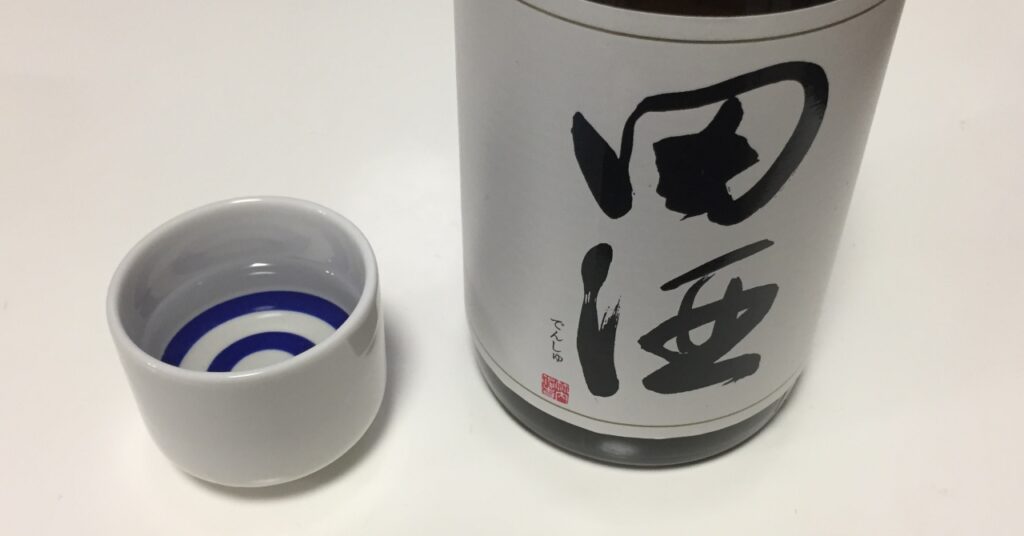I purchased the famous “Denshu” from Nishida Sake Brewery in Aomori Prefecture, Japan.
The one I chose this time is their ”Tokubetsu junmai sake”. While they also have “ginjo” and “daiginjo” varieties, this “Tokubetsu junmai sake” is so delicious that I think any higher grades would be unnecessary.
In this article, I will share with you my thoughts on what kind of sake “Denshu Tokubetsu Junmai sake” from Nishida Sake Brewery is like.
Basic information about “Denshu Tokubetsu Junmai sake”.
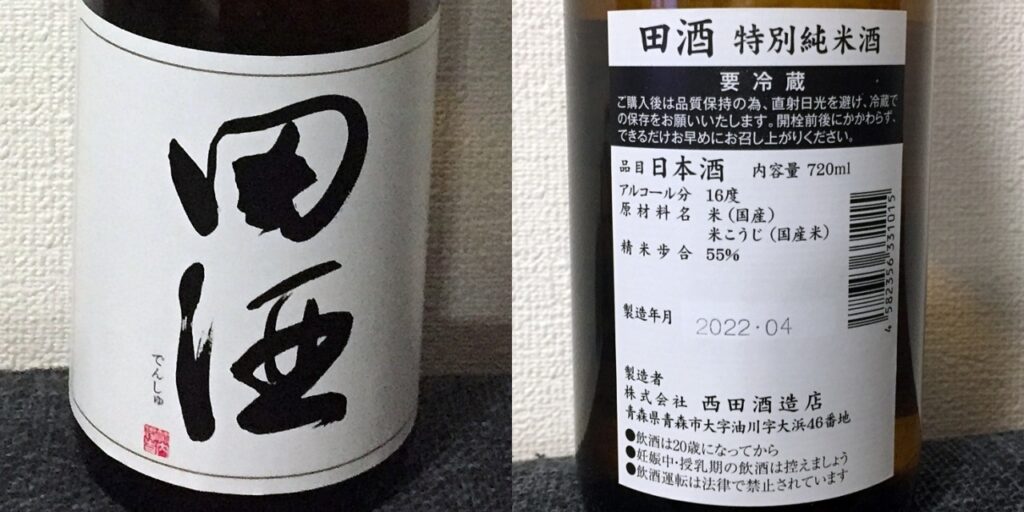
First, we will organize basic information about “Denshu Tokubetsu Junmai sake”, including information about the brewery and the alcohol percentage.
About the brewery of “Denshu”, Nishida Sake Brewery.
Here is the information about the brewery of “Denshu,” Nishida Sake Brewery.
| Brewery name | NISHIDA SAKE BREWERY CO.,Ltd. |
| Location | Aomori City, Aomori Prefecture, Japan |
| Founded year | 1,878 |
| Main product | Denshu,Kikuizumi |
Basic information on Denshu Tokubetsu Junmai Sake (numerical evaluation)
We organize the numerical evaluation of “Denshu Tokubetsu Junmai Sake” with reference to the label and the official website.
| Types of sake | Tokubetsu Junmai Sake |
| Rice polishing ratio | 55% |
| Raw rice | 100% Hanafubuki |
| Alcohol degree | 16% |
| Sake meter value | ±0 |
| Acidity | 1.5 |
The alcohol content was 16 degrees on the label, but it was 15.5 degrees on the official website. It seems that the numerical evaluation changes depending on the manufacturing time and finish condition.
What is Tokubetsu Junmai Sake
“Tokubetsu Junmai” is defined as follows under the Japanese Liquor Tax Act.
- Among junmai-shu or honjozo-shu, those that have particularly good flavor and color, and that are indicated on the containers or packaging of the sake by describing the raw materials used, the manufacturing method, and other objective matters.
- Junmai sake with a rice polishing ratio of 60% or less
This sake is called “special junmai” because the rice polishing rati
What is Hanafubuki
Hanafubuki is a type of rice suitable for sake brewing originating in Aomori Prefecture, and is often used in sake brewing in Aomori Prefecture.
“Hana” in Hanafubuki means flower, and “Fubuki” means blizzard, which is Japanese for how the petals dance in the wind.
Impressions of “Denshu Tokubetsu Junmai Sake” (evaluation/review)
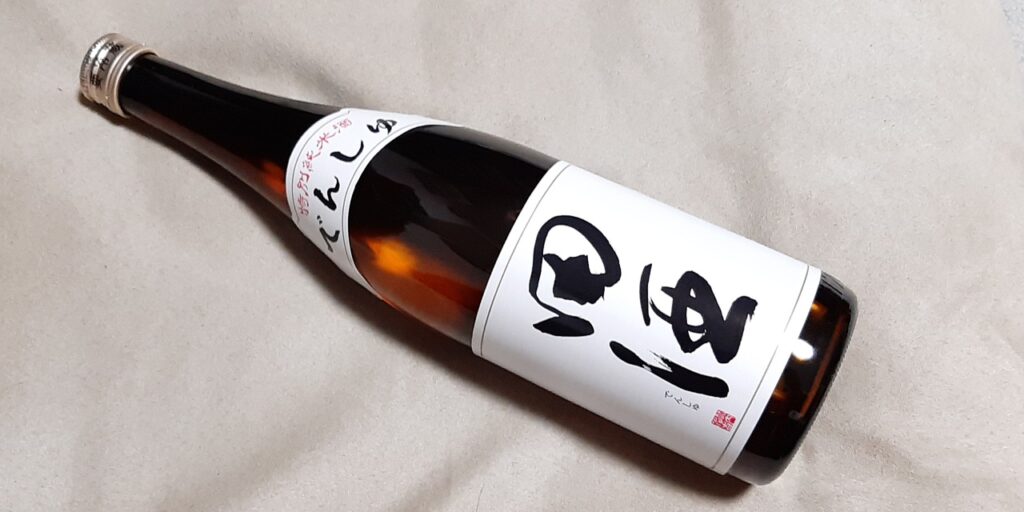
A five-point evaluation of the taste and aroma of “Tadagin Tokubetsu Junmai sake”.
First of all, I will tell you the impression of the strength of taste and aroma on a 5-point scale. (A rating of 5 is the strongest sake I’ve ever had.)
| Evaluation item | evaluation |
|---|---|
| fragrance strength | 3 |
| intensity of sweetness | 2 |
| strength of acidity | 3 |
| Strength of Umami | 3 |
| Strength of spiciness and bitterness | 3 |
The color and aroma of “Denshu Tokubetsu Junmai Sake”o are as follows.
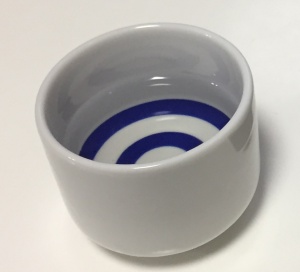
The color is clear and almost transparent as you can see in the picture.
The scent is a very nice fragrance.
If you express it, it has a sweet scent like a high-end melon.
Also, in the melon-like scent, you can feel the faint scent of rice.
Characteristics of the taste of “Denshu Tokubetsu Junmai Sake”
The sweetness is rich and leaves a viscous impression.
When sipped, there is a sensation of the aroma escaping through the nose, which is very pleasant.
The sweet melon-like scent that comes out of the nose makes this sake even sweeter.
Summary
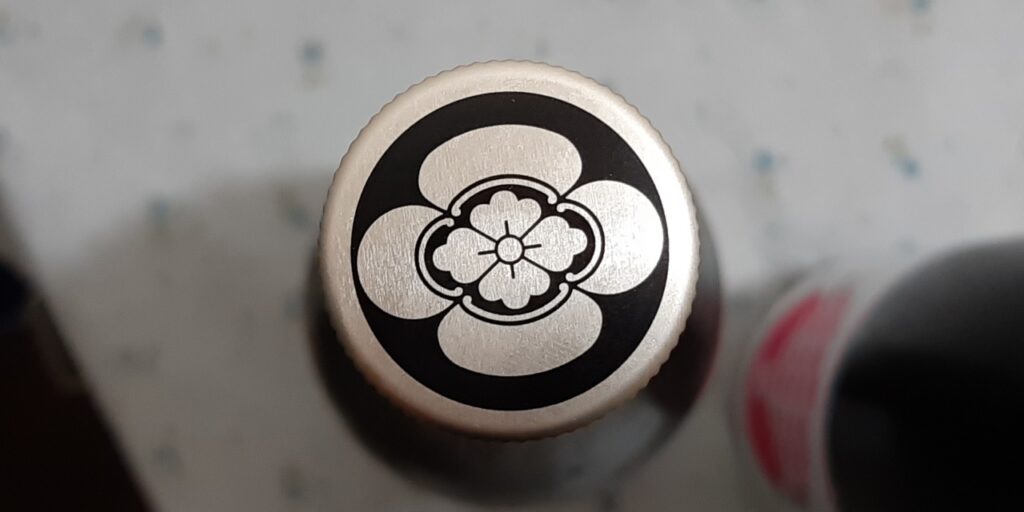
Thank you for reading until the end.
“Denshu Tokubetsu Junmai” sake has a rich aroma like Ginjo-style sake, and its sweet melon-like scent enhances the sweetness of the sake,
making it very delicious. It is a sake that I would definitely recommend trying if you have the opportunity.

